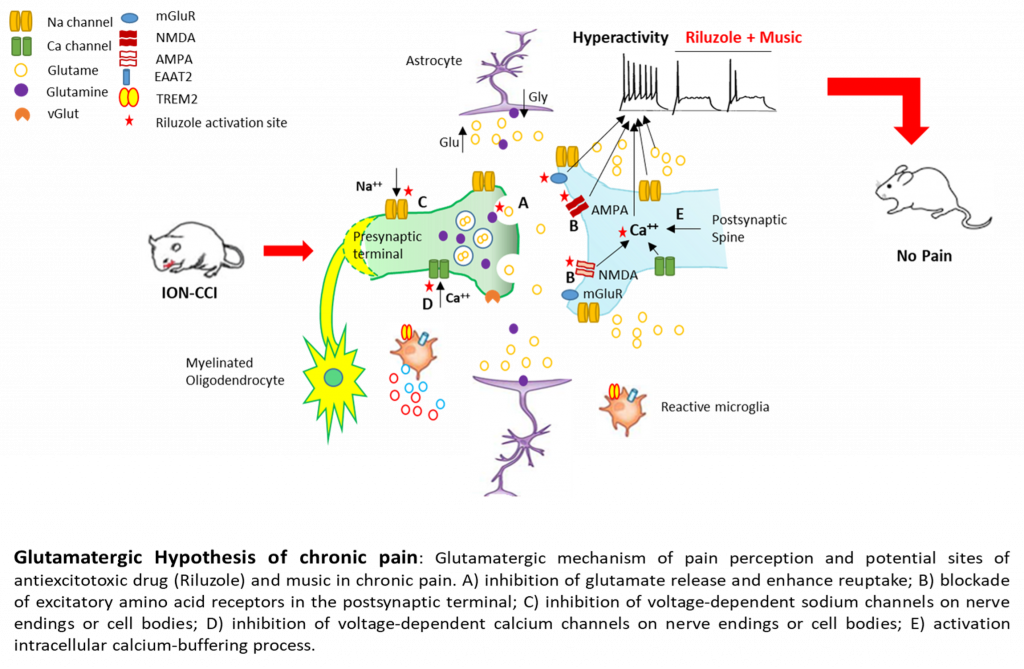Chronic neuropathic pain is a debilitating condition that affects 7-10% of the adult population globally, characterized by hyperalgesia, allodynia, and spontaneous pain caused by the imbalance of excitatory and inhibitory transmission resulting in synaptic plasticity. Excessive activation of glutamate receptors, downregulation of glutamate transporter and unwarranted glutamate production that causes the hyperactivity of glutamatergic neurons is the hallmark mechanism of neuropathic pain. We have reported functional disturbances in the anterior cingulate cortex (ACC)-basolateral amygdala (BLA) neural circuitry and upregulation of glutamatergic neurotransmission in the ACC of animals with infraorbital nerve-chronic constrictive nerve injury (ION-CCI), leading to deficits in decision-making function. Recently, our preliminary data show Riluzole, a glutamate antagonist, resolves neuropathic pain in ION-CCI model by suppressing neuronal activity in the ACC, providing direct evidence for involvement of glutamatergic neurons in developing chronic neuropathic pain. Recent evidences suggest that music can change activity in brain structures, including ACC and can alleviate pain. Therefore, we hypothesize that music can alleviate pain by targeting glutamatergic system.

